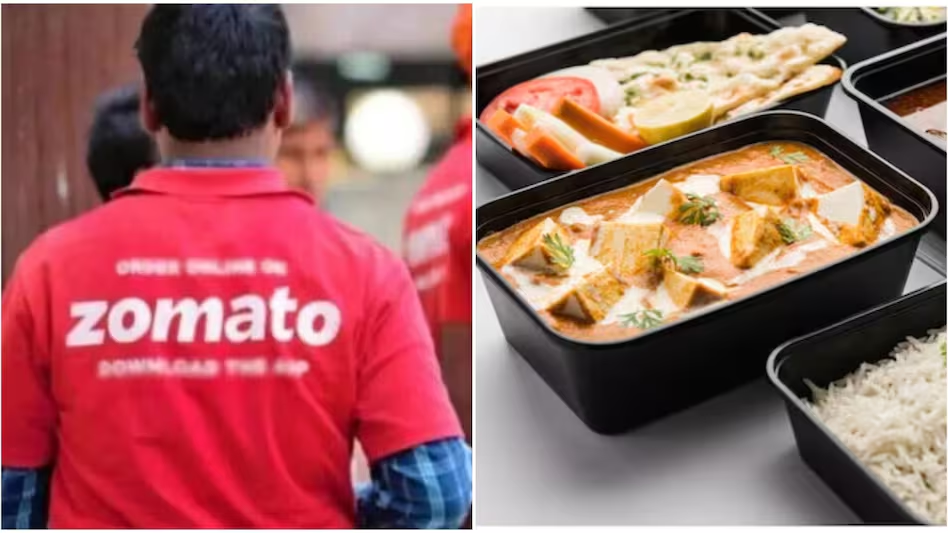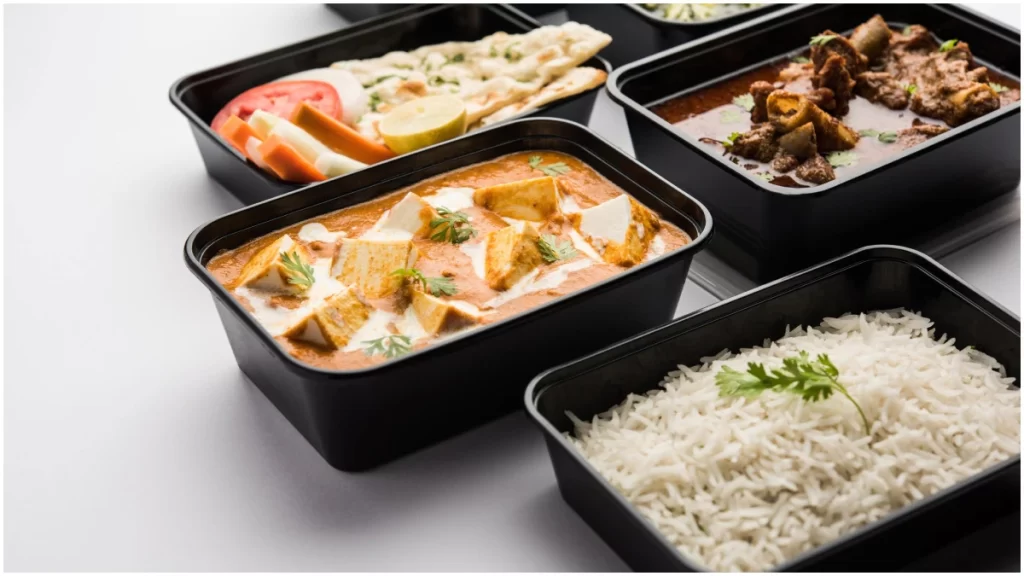Beware Of Black Plastic Kitchenware: How It Could Be Harming Your Health
A recent study has raised concerns about the potential health risks of black plastic kitchenware. While stylish, these items may contain harmful chemicals that could leach into food, affecting your health. It’s essential to reconsider the use of black plastic in your kitchen to safeguard your well-being.

Celebrity Nutritionist Asks Swiggy And Zomato To Stop Using Plastic Containers
A recent study by Toxic-Free Future and Vrije Universiteit Amsterdam has revealed alarming findings about black plastic items commonly used in kitchens. These items, including spatulas, containers, and disposable trays, may contain high levels of toxic chemicals, such as cancer-causing and hormone-disrupting substances.
The study shows that many black plastic products are made from recycled plastics, which can carry flame-retardant chemicals. These substances pose significant health risks, from hormonal imbalances to potential cancer risks, especially when used in food-related applications. With such findings, it’s time to reconsider the use of black plastic items in our kitchens.
The recent study highlights a disturbing trend in the recycling of plastic materials, particularly from electronics like televisions. Plastics used in these devices, often containing high concentrations of toxic flame retardants, are being repurposed to create household items, including kitchen utensils and food storage containers. These recycled plastics are typically black, as the flame retardants give them a dark color.
Heather Stapleton, a professor at Duke University, points out that such electronics, which are already filled with harmful chemicals, are being recycled into everyday products, exposing consumers to significant health risks. These toxins can leach into food and beverages, raising concerns about their potential to disrupt hormones and contribute to other health issues.
Megan Liu, a study co-author and science and policy manager at Toxic-Free Future, expressed concern over the recycling of products containing harmful chemicals. She stated, “These cancer-causing chemicals shouldn’t be used, but with recycling, they are entering our environment and our homes in more ways than one. The high levels we found are concerning.” The study, published in the journal Chemosphere, tested 203 household items made of black plastic. Shockingly, 85% of these items contained toxic flame-retardant chemicals. The study found the highest concentrations of these harmful chemicals in everyday objects, including a sushi tray, spatula, and even a beaded necklace.
The study highlights several serious health concerns associated with flame-retardant chemicals commonly found in black plastic kitchenware. These concerns include:
- Carcinogenicity: The potential of a chemical to cause cancer by inducing tumours, both benign and malignant.
- Endocrine Disruption: Chemicals that alter hormone activity or production, potentially leading to various health issues.
- Neurotoxicity: Exposure to these chemicals can damage the brain or peripheral nervous system.
- Reproductive Toxicity: These chemicals may adversely affect sexual function, fertility, and even developmental health in offspring.
- Developmental Toxicity: Exposure can disrupt normal growth and development, potentially altering behaviour and other developmental processes.
Experts recommend minimizing exposure to black plastic items in the kitchen and replacing any concerning kitchenware. Using black-coated items less frequently can also reduce health risks.

Swiggy and Zomato Under Fire: Celebrity Nutritionist Calls for Plastic-Free Delivery
Celebrity nutritionist Luke Coutinho has recently raised an important issue regarding the food packaging practices of popular delivery platforms like Zomato and Swiggy. In an open letter, Coutinho called on these companies to eliminate the use of plastic containers for food delivery. He emphasized that plastic packaging could release harmful toxins, potentially compromising the health of consumers who regularly use food delivery services.
Coutinho’s plea highlights the growing concern around plastic’s impact on health, particularly when exposed to heat, as in the case of hot food being delivered in plastic containers. The toxins released from plastic can affect hormone levels, disrupt the immune system, and contribute to long-term health risks.
In response, Zomato acknowledged the request and expressed a commitment to exploring eco-friendly alternatives. The company emphasized that it has been working toward reducing its environmental footprint, but the challenge of switching from plastic to safer materials is a complex one that requires balancing affordability, sustainability, and practicality for both consumers and restaurant partners.
The call for change reflects an increasing consumer demand for sustainable and health-conscious options, as more people are becoming aware of the health implications of plastic waste and its environmental toll. As the discussion continues, many are hoping to see more food delivery services take action and transition to safer, non-toxic packaging materials.
When ordering food from outside, most people focus on the hygiene of the restaurant and the quality of ingredients used. But there’s one critical factor that often gets overlooked—the packaging. The type of container used to pack food can have a significant impact on health, especially when it comes to hot food. The harmful chemicals in plastic containers can leach into the food, potentially affecting the body when exposed to high temperatures.
Celebrity nutritionist Luke Coutinho recently addressed this concern on Instagram, urging popular food delivery platforms like Zomato and Swiggy, as well as their partnered restaurants, to adopt biodegradable and non-plastic containers for food packaging. In his post, Coutinho highlighted the importance of using safer packaging materials, stating, “Hot food in plastic is making people sicker.” He also pointed out that while some restaurants already use eco-friendly packaging, the practice is not universal, and he called for greater consistency across platforms and restaurants.
In addition to the packaging, Coutinho also emphasized the negative impact of fast cooking methods. He explained that in the race to deliver food quickly, restaurants often cook at high heat, which can destroy many of the nutrients in ingredients. Furthermore, refined oils are typically used for fast cooking, which can lead to an unhealthy final product.
Coutinho’s post sheds light on the hidden dangers of food packaging and cooking methods, encouraging food delivery services to prioritize the health of their customers by adopting safer, more sustainable practices. His message is clear: change is necessary, and the food industry has the power to make a positive impact on consumer health.
Celebrity nutritionist Luke Coutinho has raised a crucial health concern about the practice of packing hot foods in plastic containers. In his recent post, he explained how the process of transferring food directly from a hot pan into a plastic container, which is then sealed with a cover, can lead to serious health risks. The heat and steam trapped inside the container begin to break down the plastic, releasing harmful chemicals such as BPA (Bisphenol A) and other toxins into the food.
These toxins, Coutinho warns, can wreak havoc on the human body, affecting hormones, fertility, and estrogen levels, which can lead to various long-term health issues. He emphasized the urgent need for change, urging food delivery platforms like Swiggy and Zomato, and their partnered restaurants, to adopt biodegradable, non-plastic containers instead.
The long-term exposure to these chemicals from hot food containers is a concern for everyone, particularly in the case of frequent takeout meals. Moving away from plastic packaging is not just necessary for personal health but also for the well-being of the planet. As Coutinho pointed out, adopting biodegradable alternatives would be a positive step toward better health and a cleaner, safer environment.
Coutinho’s message is clear: It’s time to prioritize both health and sustainability by shifting to safer, eco-friendly packaging options, ensuring a healthier future for consumers and the planet alike.





